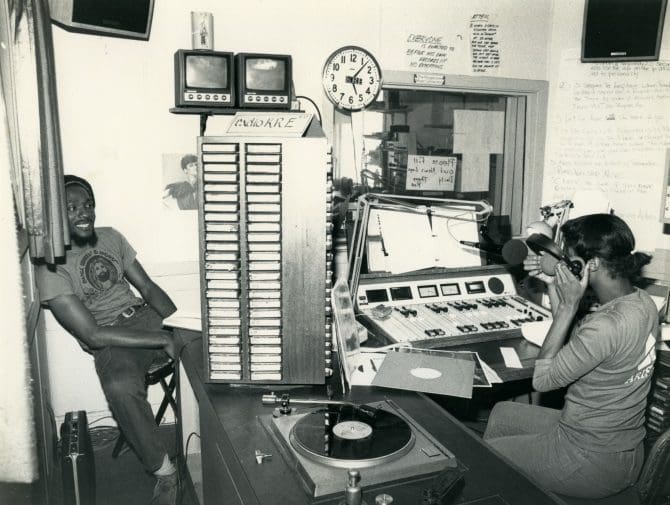
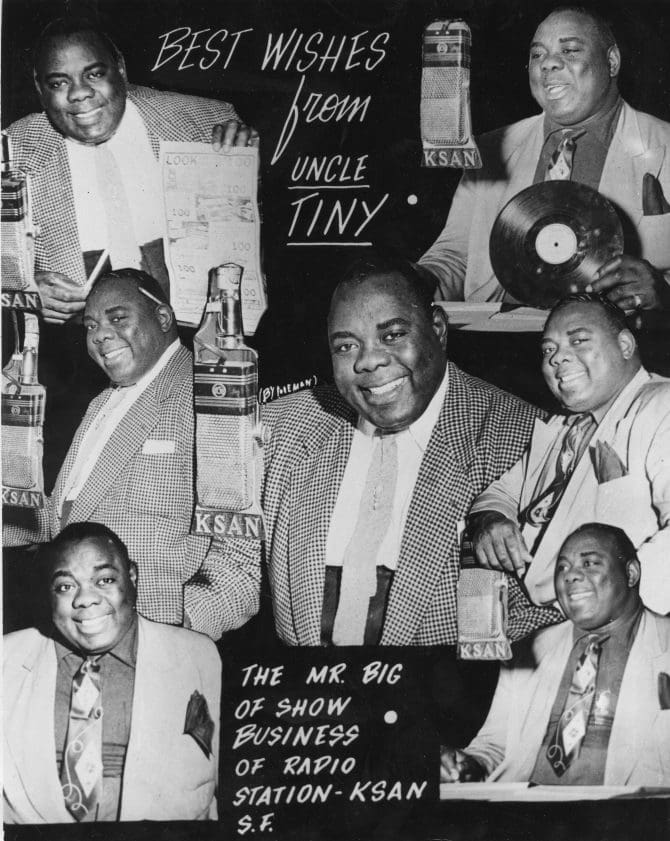
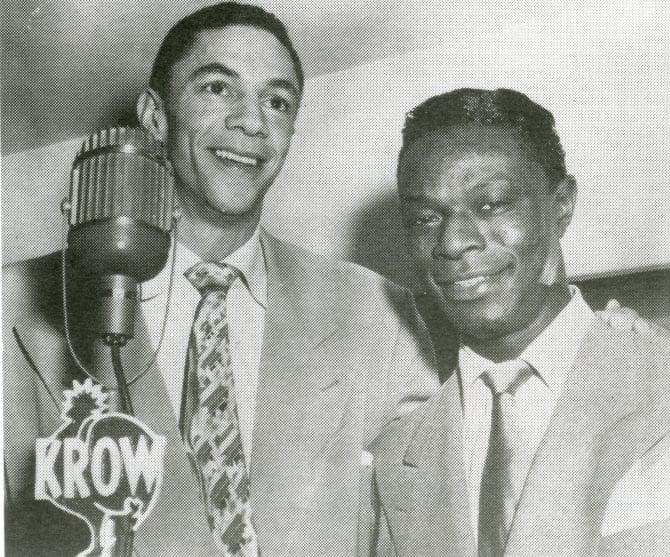
Prepare for a visit to AAMLO with these special topic resource guides.
This resource guide is intended to help users locate holdings at AAMLO recognizing African Americans in radio, with an emphasis on Bay Area Black-owned radio stations.
It highlights holdings in the following areas:
● Selected Library Material at AAMLO
● Selected Archival Collections at AAMLO
Other collections may contain relevant materials. Please contact AAMLO (aamlo@oaklandlibrary.org) with any questions or to schedule an appointment to view materials in person.
Selected Library Materials
African Americans in Radio, Film, and TV Entertainers by Linda J. Armstrong
I See Black People: the Rise and Fall of African American-owned Television and Radio by Kristal Brent Zook
Legendary Pioneers of Black Radio by Gilbert Anthony Williams
Entrepreneurs of Profit and Pride: From Black-appeal to Radio Soul by Mark Newman
Broadcasting Freedom: Radio, War, and the Politics of Race, 1938-1948 by Barbara Dianne Savage
Radio and the Struggle for Civil Rights in the South by Brian Ward
Wheelin' on Beale: How WDIA-Memphis Became the Nation's First All-Black Radio Station and Created the Sound That Changed America by Louis Cantor
Voice Over: the Making of Black Radio by William Barlow
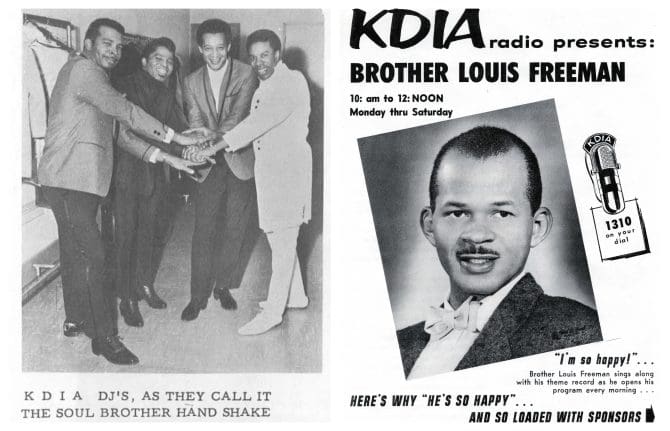
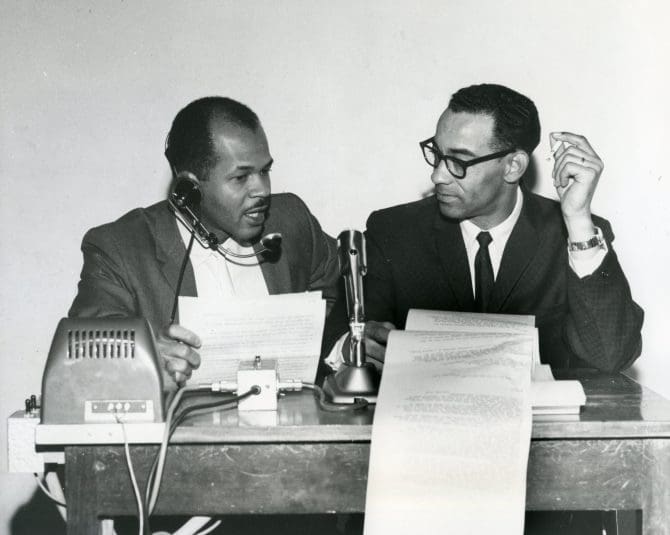
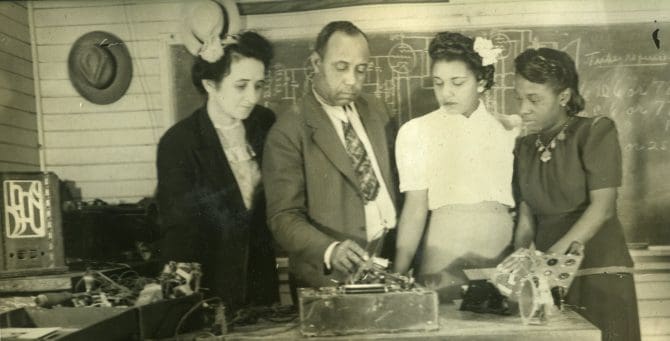
Selected Archival Collections
African American Museum & Library at Oakland Audiovisual Collection. Recordings include William “Rosko” Mercer KDIA broadcasts (1962-63), and select programs airing on KSOL Community Dynamics, KSAN Radio, KQED-FM Forum, and KPFA News.
Elihu M. Harris Papers. In 1992, Elihu M. Harris (1947-) purchased KDIA radio station with former California Assembly Speaker Willie Brown. They operated the historically Black-owned radio station until it was purchased by Baybridge Communications in 1996. Records related to Harris' co-ownership of KDIA radio station include the station's business plan, promotion and advertising material, legal documents related to the station's purchase in 1996, and financial records.
Robert C. Maynard Institute for Journalism Education Oral History Collection. Includes an oral history interview with journalist Belva Davis. Davis’ broadcasting career began in radio, where she worked at various stations in the Bay area, including KSAN, KDIA and KNEW. She was hired by KNEW in 1964 to host a weekend radio show called The Belva Davis Show before being hired by KPIX TV as the first African American woman television reporter on the West Coast.
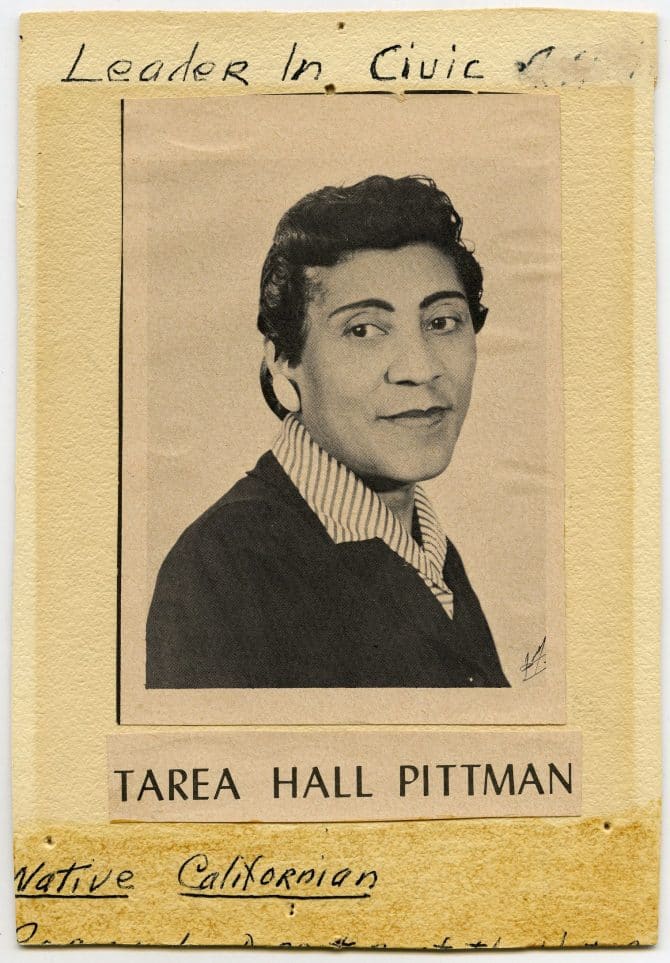
Tarea Hall and William Pittman Papers. In the 1930s,Tarea Hall Pittman (1903-1991) became active in civil rights organizations, serving as president of the California State Association of Colored Women’s Clubs from 1936-1938, organizing West Coast branches of the National Negro Congress, and hosting the radio program, Negroes in the News, on KDIA in Oakland, California which she would hosted for over 45 years through the 1970s.
Jay Payton Papers. While working as a dancer and emcee at the It Club in El Cerrito, Jay Payton (1925-2016) met disc jockey and club owner Don Barksdale (1923-1993). During the '60s, he was club emcee at Barksdale’s the Showcase and the Sportsman clubs, and throughout his career he was a hosting fixture at clubs in Oakland. Beginning in 1972 Payton hosted the KEMO-TV music show “Soul Is” (later “The Jay Payton Show”), a weekly entertainment show on Channel 20 featuring national and Bay Area African American musicians and performers. View online at the Internet Archive.
Benjamin V. Williams Papers. Audiovisual material in the papers of journalist and television reporter Benjamin Vernon Williams (1927-2012) contain Williams' radio news reports on the Symbionese Liberation Army's kidnapping of Patty Hearst. Listen online at the Internet Archive.
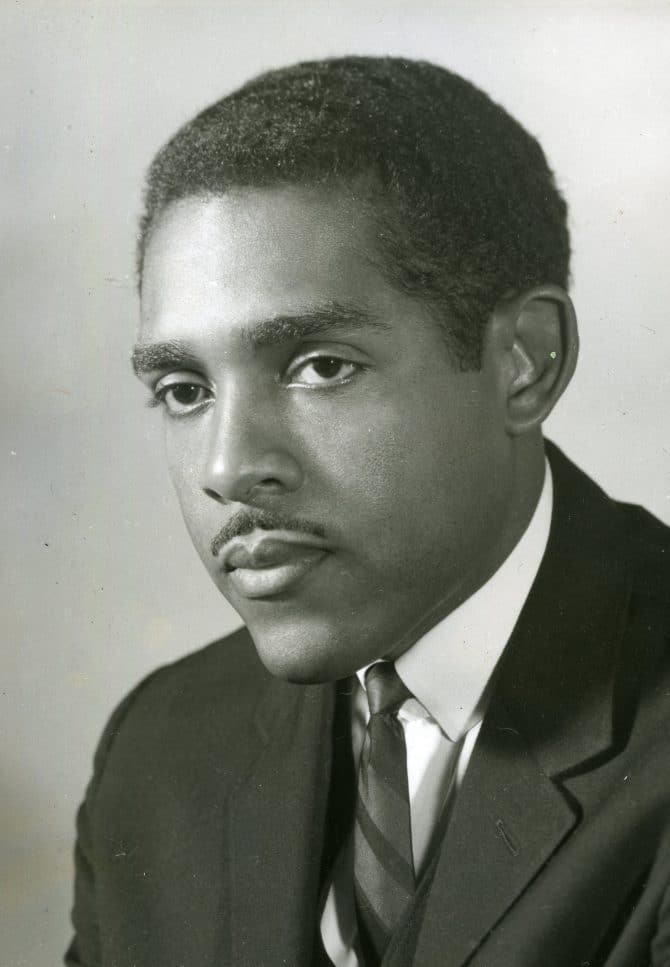
African American Museum & Library at Oakland Vertical File Collection. Selected items include:
- Tributes to and biographical notes on Don Barksdale
- KDIA radio program flyers
- Reports by Evergreen Baptist Church on the church's radio ministry
- Radio addresses by elected officials including lieutenant governor George J. Hatfield
Brownie McGhee Papers. Oral history interviews with blues musician Walter B. "Brownie" McGhee (1915-1996) discuss the blues scene in New York City and Brooklyn and his radio show on WNYC. Listen online at the Internet Archive.
Ruth Acty Papers. Include writings by educator, author, and actor Ruth Acty (1913-1998) for a 1952 Negro in the Arts for Brotherhood radio program.
Bryant Family Papers. The Bryant Family Papers include correspondence, records, realia, publications, photographs, and artwork that document aspects of the family's work life, social life, and political activities. Included in the papers is an undated KDIA Community Service report covering the Western NAACP Conference, featuring photographs of C. L. Dellums, Louis Freeman, Byron Rumford, and Franklin William.
Lawrence P. Crouchett Papers. Historian and teacher Lawrence P. Crouchett worked as a KDIA radio announcer and won the John Swett award for his program, Issues on Education. After his retirement from Diablo Valley College, Crouchett continued his work as a scholar and promoter of African American pride and awareness through historical study and as Director of the Northern California Center for Afro-American History and Life.
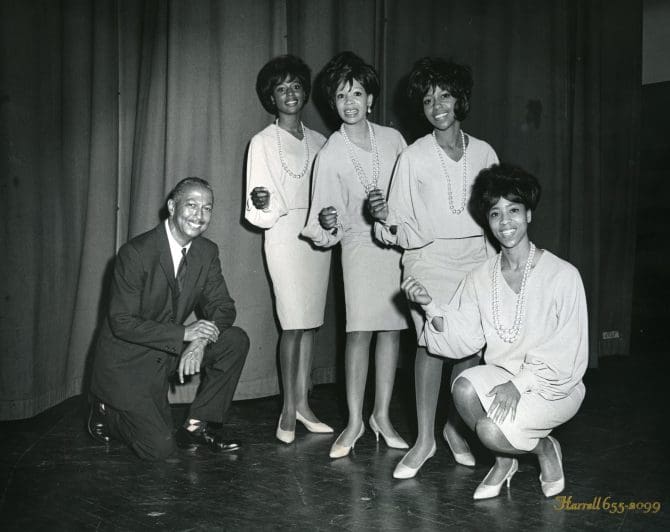
Oakland Post Photograph Collection. Selected photographs appearing in the Oakland Post newspaper between 1963-2005 include:
- Photographs of radio beauty contests including Miss Bronze Northern California and Miss Tan America, circa 1960s
- Portraits of Ray Taliaferro, KGO Radio News Talk
- Images documenting the history of KDIA FM including portraits of station managers Walter Conway and Aleta Dwyer Carpenter, news director Louis Freeman, radio personality Belva Rodney Reed, disc jockey Paul Reid, and many others
- Pictures of KSAN and KABL radio personalities and studios including Jumpin’ George Oxford and Chuck 'Bugg' Scruggs
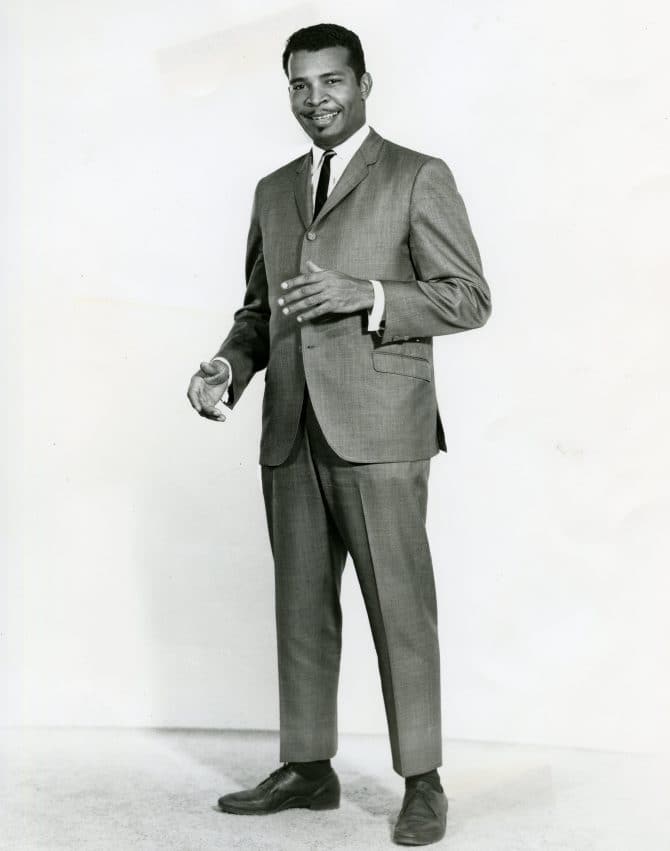
Troyce Key Papers. Include radio playlists (1988-1989) of the Eli Mile High Records label for various West Coast Blues radio programs.
Melzrine and Warren Moore Papers. Warren Moore (1921-1993) was an avid ham radio operator, owner of Moore’s tv and radio repair service, and an active member of Evergreen Baptist Church in Oakland, California.
Lester J. Bodin Papers. Lester J. Bodin would become president of the Cannery Workers’ Union, leadership training chairman for the Live Oak District of the Boy Scouts of America, president of the Kiwanis Club of Jack London Square, and was active in the Eastbay Radio Club. Bodin passed away in Oakland on November 28, 1993.
Warren Moore Audio Recordings Collection. The Warren Moore Audio Recordings Collection consists of audiocassettes of church sermons, funeral programs, business meetings, prayer clinics, bible lessons, and over 40 radio broadcasts of sermons on stations such as KRE, KDIA, and KSOL.
Friends of Negro Spirituals Oral History Collection. Include an oral history interview conducted by KaSelah Crockett with KPFA (Berkeley’s Pacifica radio station) jazz programmer Earland "Doug" Edwards discussing his broadcasting career, his advocacy for Negro spirituals, and how spirituals relate to the history of African Americans.
Eudora C. Proctor Papers. After learning to dance from Bill Robinson’s radio programs, Eudora “Dodo” Proctor (1917-1993) began working at The Barbary Coast night club at age 12. Proctor continued to work as a performer and dance instructor, and she also worked as various positions as a nurse’s aide, clothing designer, and a beautician, eventually opening her own beauty parlor, Eudora’s House of Beauty, in Oakland in the 1950s.
Henry Delton Williams Papers. In addition to his work as a fashion and costume designer, Henry Delton Williams (b. 1941) pursued an early career in gospel music, singing with such talents as the Hawkins Family and on the weekly live gospel show for KRE radio, Berkeley.
Phillip E. Jenkins Papers. Beginning in 1968, Jenkins (1917-1993) became active in jazz preservation with the establishment of the Sacramento Traditional Jazz Society. His knowledge of jazz and personal collection of jazz recording led him to a radio career beginning in 1974, when he began the weekly jazz radio program, “Sacramento Classic Jazz” on the California State University radio station KXPR and subsequently on the university’s new jazz station KXJZ. His weekly radio program continued to air until shortly before his death on February 10, 1993.
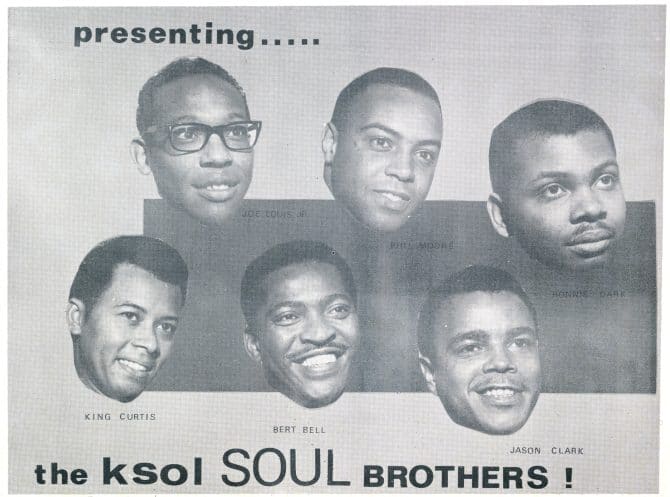
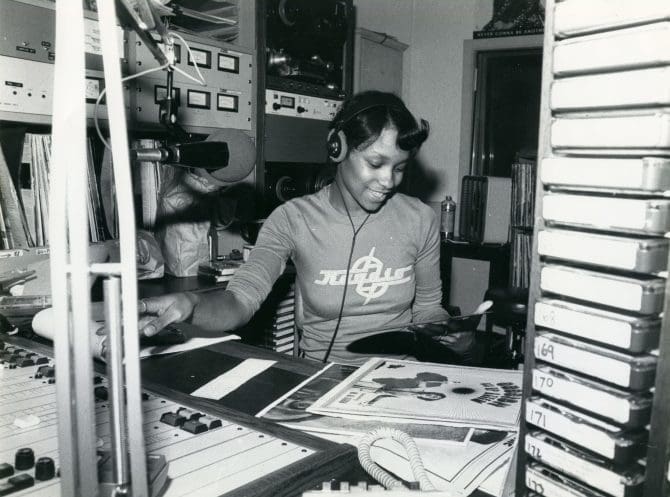
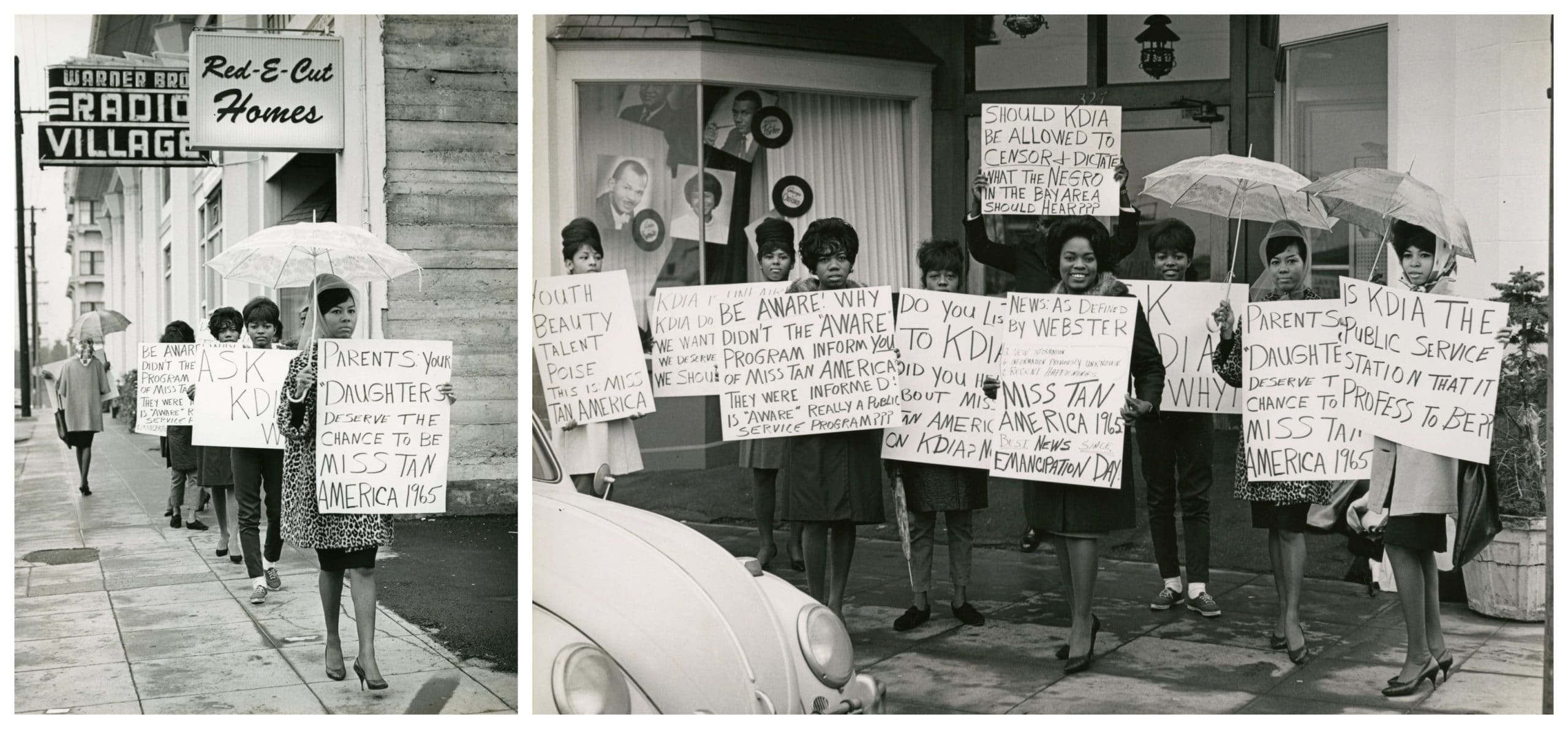
Additional Information
Search the library using the catalog.
Consult AAMLO's finding aids in the Online Archive of California.
We are working to create new resource guides. Have an idea for a new guide? Contact us at aamlo@oaklandlibrary.org.
